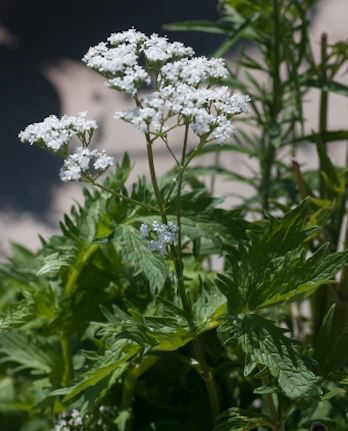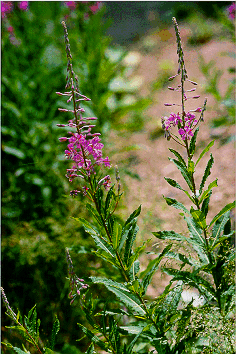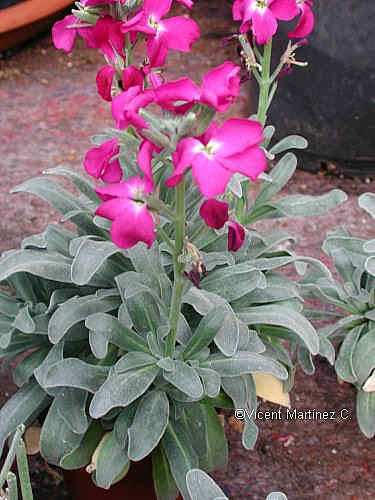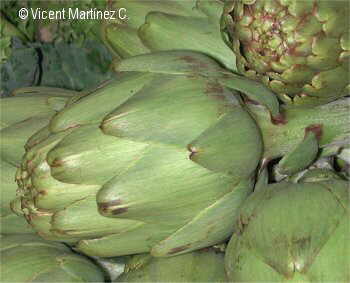Contents
Health benefits of common valerian (Valeriana officinalis L.)
Characteristics of common valerian
Common noun: Common valerian, Garden heliotrope
Scientific noun: Valeriana officinalis L.
Family: Valerian family -Valerianaceae
Habitat: We find it in woods, riversides and humid grasslands.
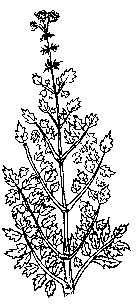
A general view of the plant
Description of common valerian
Perennial herb till 2 m.tall.
Erect, robust stem, glabrous or pubescent, grooved.
Pinnate compound leaves. Upper ones with shorter stalk or unstalked.
White or pink flowers clustered in flat inflorescences, a central one in a higher position than the two side ones. Tubular calyx till 2.5 cm. long.
Picking and storing common valerian
Spring and Autumn are the best seasons to pick the roots of the plant. Clean and leave them to dry in a aired place.
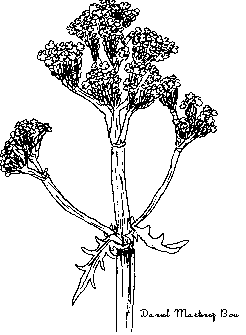
A detail of the inflorescence and upper leaves

A detail of the flower and the fruit
MEDICINAL PROPERTIES OF COMMON VALERIAN
INTERNAL USE
– Sedative: Against any type of nervous disorder – palpitations, spasms, vomiting, nervous breakdown, anxiety, depression, postpartum depression, premenstrual syndrome, schizophrenia, etc. It eliminates anxiety and promotes sleep in fibromyalgia – Infusion of about 15 grams from the root which has to be left in water all through the night.
Useful to quit smoking, since it can help reduce the irritability of the smoker and allow him/her to sleep better (Take it according to the patient’s leaflet) (Infusion of about 15 grams of the root of the plant is allowed to stand overnight)
Valerian plant |
– Hypnotic: It helps you to sleep well. (Infusion of a teaspoonful for a cup of water before bedtime) (Take capsules of the dry plant according to the patient information leaflet two hours before going to bed. On sale in pharmacies and herbalists’)
– Anti-inflammatory: Put a compress soaked with the infusion of dry roots on any swollen part of the body.
– Alcoholism: Common valerian helps to reduce anxiety and is a sleep disorders remedy.
– Anorexia: Against any type of nervous and depressive upheaval – palpitations, spasms, vomits, nervous exhaustion, stress, etc. (Infusion of about 15 grams by the root of the plant that has been left to rest during all night)
– Vaginismus: (Infusion of about 15 grams of the root of the plant, allowed to stand overnight)
– Bulimia: It can be useful as a tranquilizing plants to reduce anxiety associated with this disease.
– Diverticulitis: Its anti-inflammatory and sedative properties are valid for the treatment of diseases such as diverticulitis. (Infusion of a teaspoon of dried herb per cup of water. A couple of cups a day)
– Irritable colon: Its antidiarrheal or astringent properties, combined with its sedative and antiemetic values, can help combat diarrhea and cramping or vomiting that are common in people with this disorder. (Three cups spread throughout the day with the infusion of 15 gr. of leaves per liter of water)
– Celiac disease: It helps to reduce stress and reduce spasms of the intestinal muscles. (Infusion of a teaspoon of dried herb per cup of water. A couple of cups a day)
Contraindications of common valerian
Pregnant or nursing women should not use it. It can not be used for children under 3 years. It can cause adverse reactions if administered just before going to bed. It is better to take it a couple of hours before.
Some people may experience allergic reactions to this plant. External application of essential oil is never recommended for pregnant or nursing women or for children under 10 years old. Do not apply externally on people with respiratory allergies.
Its continuous usage may create a certain dependence. It is better to stop for 15 or 20 days after taking it for 10 consecutive days.
This plant has depressant properties and it should not be used when the affected people have sleep apnea.
![]() More information about natural medicine.
More information about natural medicine.

